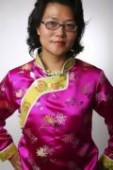
An aging population is no exception, but China is becoming grey fast, before it earned enough money to deal with the consequences, writes author and journalist Zhang Lijia in Al Jazeera. The dramatic fallout of the one-child policy.
Zhang Lijia:
(China) is aging at an unprecedented speed: At the end of 2014, the elderly population, defined as those 60 years of age and older, had reached 212 million.
According to the National Committee on Aging, by 2053, the number of elderly people will leap to 478 million, accounting for 35 percent of the total population, compared with the world average of 20 percent.
It will make China the most aged society in the world.The startling percentage stems from two facts: a significant increase in average life span – from 41 to 73 over the past five decades, and the dramatic demographic changes caused by the one-child policy introduced in 1979. China’s announcement of ending the policy last week was mostly aimed at addressing the issue.
Traditionally, children were expected to hand over part of their salaries to their parents and care for them in their old age, an obligation dictated by the highest Confucius virtue of “filial piety”. In today’s increasingly individualistic society, however, filial piety is taking a backseat as the family ties are loosening.
The fast-paced modern life, high pressure at work and a mobile population – a vast number of rural youth leave their poor villages to seek work in the cities – all mean that increasingly young people are no longer at home to take care of their parents. Many don’t offer financial help either.
Amid ever louder complaints by neglected parents, a cosmetic company in southern China’s Guangzhou came up with a novel idea – to impose a “filial piety tax” on its employees, most of them migrant workers.
In order to “inspire filial respect for parents”, the company introduced a rule three years ago, which automatically deducts 10 percent out of the salaries of single employees and 5 percent of that of married employees and wires the amount directly to their parents.
The news reported in The Guangzhou Daily shortly before the Chongyang holiday has sparked much discussion on social media. While some questioned the legality of the rule, others welcomed any means that might force young people to pay more attention to their parents.
More in Al Jazeera (from Zhang Lijia´s weblog).
Zhang Lijia is a speaker at the China Speakers Bureau. Do you need her at your meeting or conference? Do get in touch or fill in our speakers´ request form.
Are you looking for more experts on cultural change at the China Speakers Bureau? Do check out this list.
